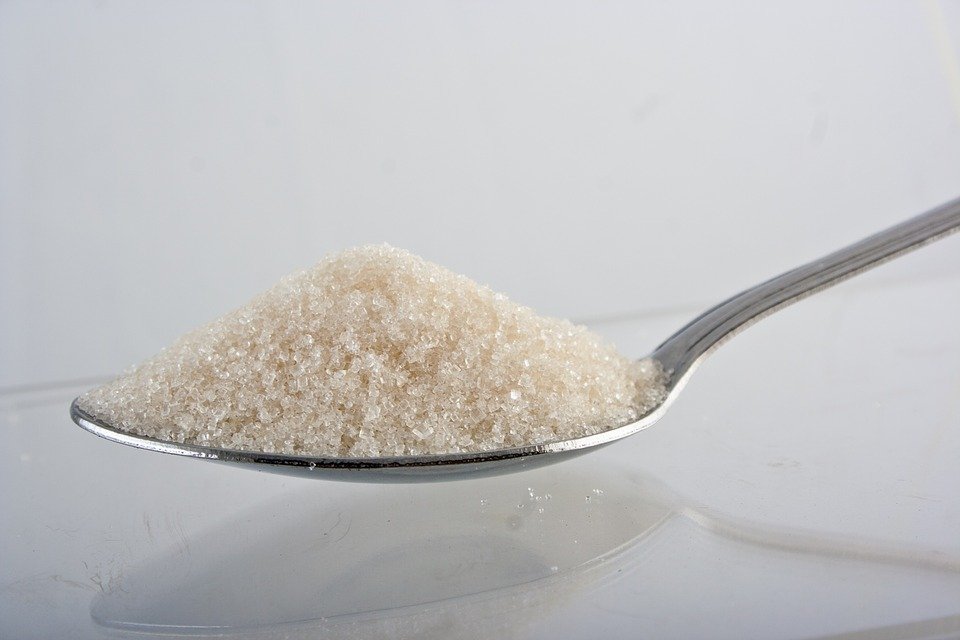
Sugar and its alternatives….what do you need to know?
We have no physiological need for refined sugar and yet it is in so many food products in our society that for many people it is a part of their daily diet. Our children are no different. In fact because so many junk food companies target children with their food products it is children who often end up consuming the most sugar (in particular relative to their body size). You’ll notice that I often used alternative sugars in my recipes. There’s a reason for that and we’ll find out why.
What I will say is this….children like sweet stuff. In order to persuade them that they don’t need to eat processed sweet stuff and junk foods I encourage children and parents to create healthier recipes at home. Sometimes I get asked why I still use any sugar in my recipes. The answer is that often children will seek it out elsewhere in less healthy products and foods if they are not getting it somewhere in their diet already. Healthier baking and healthier home made foods with less sugars in is certainly a huge step in the right direction. I also believe that by eating less sugar our palates change and perhaps this way we can teach our children that they don’t NEED as much sugar in their diet as the food industry will have them believe! Our favourite natural sweeteners are raw honey, coconut sugar, rapadura, molasses and pure maple syrup. Let’s discover more about the options for sugars and alternatives:
white refined sugar – a ‘pure’ industrial product that doesn’t provide us with anything beneficial. Some studies show that white refined sugar can in fact suppress the immune system, decrease energy, raise blood pressure and feed bacteria in the gut. We avoid this sugar.
demerara sugar – slightly less refined. This is produced from the first crystallisation processing of cane juice into sugar crystals. We do not have this sugar at home as it is still a refined sugar and less pure than our favourite cane sugar….rapadura.
rapadura – this is the least processed of all the cane sugars. After extracting the pure cane juice it is then evaporated over low heats until crystals form. It is not cooked at high temperatures and the nutrient-rich molasses stays in tact. This is a our cane sugar of choice for use at home. I buy ours online or at health food stores.
molasses – when sugar crystals have been extracted the syrup that is left is called molasses. This syrup is boiled many times to reduce the sugar content. It has a very rich flavour and works well added to gingerbread cakes and spice-based biscuits or sauces. It also has a lower effect on blood sugar than other sugars. We use this from time to time at home in baked beans, smoky sauces and ginger-based baked goods.
agave – what was once quite a promising sugar alternative has become a victim of its popularity. It is now such a highly processed product due to demand that much of the nutrient value is lost in production. Furthermore it is made up predominantly (up to 75% of its sugar content) of fructose which it is now believed causes of health problems if consumed to excess. We avoid using agave at home.
coconut sugar – this is made from the nectar collected from the coconut tree which is boiled to produce sweet crystals. It has a great taste and less of an effect on blood sugar than white refined sugar or the other cane sugars in fact. This is often our sugar of choice in cakes. We buy ours from health food stores or Costco.
raw honey – is very easy to digest, and has less of an effect on blood sugar compared with refined sugar. It’s sweeter than refined sugar too so you need less of it. Cook cakes at lower temperatures if using this as your sweetener of choice though as it burns at higher temperatures causing it to have an odd taste.
barley malt syrup/rice malt syrup – these malted grains mix with water to allow the enzymes to start working. The insoluble fibre is removed and a sugary liquid remains which is boiled to produce a syrup. Both have a sharp effect on blood sugar. Whilst barley malt syrup tends to contain gluten, rice malt syrup tends to be gluten free.
maple syrup – the sap from maple trees is collected then boiled. The resulting syrup is rich in nutrients. Although costly this is a great syrup to use in baking or on pancakes or home-made desserts. It has a unique and standout flavour too.
stevia – another victim of its popularity to a degree. The zero effect on blood sugar makes this a popular choice for food manufacturers including the big brands we are now seeing come to market using this sweetener. However, the product used in processed foods is created using a number of chemical processes. The resulting white stevia powder has none of the health benefits of the original green leaf stevia powder. This green powder uses only cold water for extraction. If you are using this as a sweetener you need only very little as it is incredibly sweet.
xylitol – is basically a sugar alcohol and therefore not fully absorbed into the body. That means there’s less of an effect on blood sugar. It’s also good for dental health. It’s not cheap but the price should reflect the process of extraction i.e. More expensive equals purer. The issue for me are that as an ‘ol’ i.e. A sugar alcohol, it can cause stomach upset in large quantities so I’d recommend not suddenly serving cake everyday BECAUSE it is made with xylitol. Rather, keep Cake as a treat and when it is made make it with a sugar alternative.
high-fructose corn syrup – this processed sugar converted from corn flour is used in a wide range of foods including fizzy drinks. High consumption of this syrup correlates with a rise in a range of diseases including type two diabetes and heart disease. I recommend everyone avoids this syrup.
aspartame, sucralose and saccharin – all made using highly industrialised processes. These sweeteners have been linked to myriad health problems. We try to avoid these sugars at all costs.
I hope you find this guide useful. It’s hard to find the real truth about sugars and what you should and shouldn’t be looking for. The simplest advice is to ‘stay natural’. If something sounds like a chemical or like a processed sugar, it probably is. Stick to what you know.
